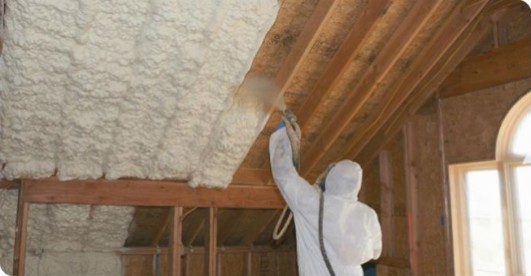 article icon
article icon
Money & Business
What does scientific evidence tell us about making our homes energy efficient?
There's lots of advice about how to save money by making your house more efficient. But how much of it is just - ho ho - hot air? Meet a man who built a house in a lab to find out.
 article icon
article icon
Health, Sports & Psychology
Becoming a superhero: what are the limits of human performance?
Would an average person be able to train hard enough to become the next Batman, Superman or Wonder Woman?
 free course icon
level 1: introductory icon
free course icon
level 1: introductory icon
Science, Maths & Technology
Starting with maths: Patterns and formulas
Patterns occur everywhere in art, nature, science and especially mathematics. Being able to recognise, describe and use these patterns is an important skill that helps you to tackle a wide variety of different problems. This free course, Starting with maths: Patterns and formulas, explores some of these patterns, from ancient number patterns ...
 free course icon
level 1: introductory icon
free course icon
level 1: introductory icon
Science, Maths & Technology
People-centred designing
Designed products surround us all and range from bus tickets to buildings. This free course, People-centred designing, focuses firmly on usability and the increasingly important phenomenon of people-centred design. It aims to inform consumers of design (i.e., all of us) about this crucial characteristic of design. In addition to stimulating ...
 free course icon
level 1: introductory icon
free course icon
level 1: introductory icon
Nature & Environment
Studying mammals: Food for thought
Who were our ancestors? How are apes and humans related? And where does the extinct Homo erectus fit into the puzzle? In this free course, Studying mammals: Food for thought, we will examine culture, tool use and social structure in both apes and humans to gain an understanding of where we come from and why we behave as we do. This is the tenth ...
 free course icon
level 1: introductory icon
free course icon
level 1: introductory icon
Nature & Environment
Studying mammals: The social climbers
Monkeys have long fascinated us because of their similarities to the human race. In this free course, Studying mammals: The social climbers, you will find out about some of the characteristics that make them so like us: their physiology, complex social interactions, large brains and intelligence. This is the ninth course in the Studying mammals ...
 free course icon
level 1: introductory icon
free course icon
level 1: introductory icon
Nature & Environment
Studying mammals: Life in the trees
David Attenborough looks at life in the trees: examining how species have evolved to cope with arboreal living. In this free course, Studying mammals: Life in the trees, you will learn how lemurs, anteaters, bears and many others have developed different methods to help movement and survival.
 free course icon
level 1: introductory icon
free course icon
level 1: introductory icon
Nature & Environment
Studying mammals: The opportunists
Many mammals are food specialists, with complex adaptations that gear them toward a particular food source. So how do the omnivores survive and prosper without these fancy evolutionary features? This free course, Studying mammals: The opportunists, examines the physiology, diet and strategies of some of these opportunistic feeders. It is the ...
 free course icon
level 1: introductory icon
free course icon
level 1: introductory icon
Nature & Environment
Studying mammals: Meat eaters
The powerful and majestic carnivores are the focus of many television documentaries. In this free course, Studying mammals: Meat eaters, we will delve into the lives of these fearsome hunters and explore their physical adaptations and social behaviour. This is the fifth course in the Studying mammals series.
 free course icon
level 1: introductory icon
free course icon
level 1: introductory icon
Nature & Environment
Studying mammals: Plant predators
From the mouse-deer to the elephant, plant eaters come in all shapes and sizes. But how do they manage to flourish on a salad diet? In this free course, Studying mammals: Plant predators, we will examine the special features that allow them to extract their nutrients from leaves, and see how some plants protect themselves from these predators. ...
 free course icon
level 1: introductory icon
free course icon
level 1: introductory icon
Nature & Environment
Studying mammals: Chisellers
Ever wondered why rats, mice and squirrels seem to reproduce at such an alarming rate? Rodents are among the most successful of all the mammal groups. In this free course, Studying mammals: Chisellers, you will learn more about some of the evolutionary features that make these creatures so plentiful. This is the third course in the Studying ...
 free course icon
level 3: advanced icon
free course icon
level 3: advanced icon
Science, Maths & Technology
An introduction to software development
Software development is the practice of organising the design and construction of software, the beating heart of much technology fundamental to our personal and professional life. This free introductory course, An introduction to software development, discusses the engineering nature of software development, its challenges and some ...